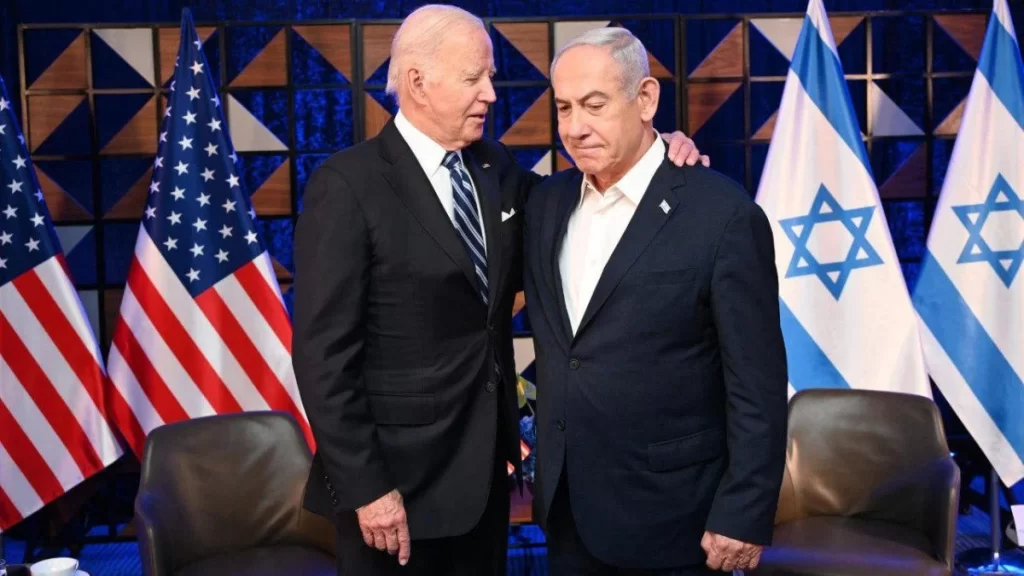Biden Administration Approves $680M Arms Sale to Israel Amid Ceasefire Talks
U.S. Arms Sale Sparks Criticism Amid Fragile Regional Peace
The Biden administration has approved a $680 million arms sale to Israel. The deal includes precision-guided munitions, such as JDAM kits and small-diameter bombs. This announcement followed a U.S.-brokered ceasefire between Israel and Hezbollah. Although U.S. officials deny any connection, critics argue the timing raises questions.

Details of the Arms Package
The approved deal features thousands of JDAM kits and hundreds of small-diameter bombs. These weapons aim to enhance Israel’s airstrike precision and overall military capability. According to Congressional sources, this deal follows a $20 billion arms package from August. That package included fighter jets, modernization kits, and artillery.
This smaller deal, valued at $680 million, highlights the strategic partnership between the U.S. and Israel. However, its timing continues to draw criticism, especially from human rights advocates.
Bernie Sanders and the Growing Opposition
Not all U.S. politicians support this arms sale. Senator Bernie Sanders, for example, introduced three proposals to block it. He argued that ongoing military aid enables Israel’s actions in Gaza, which face international condemnation.
Although these proposals did not pass, they reflect increasing opposition to unconditional military support. Critics, including Sanders, question whether these deals align with the U.S.’s stated commitment to peace and human rights.
The Ceasefire and Controversial Timing
Israeli Prime Minister Benjamin Netanyahu suggested the arms deal influenced the ceasefire with Hezbollah. U.S. officials, however, denied this connection. Even so, many see the sale as tacit approval of Israel’s military tactics.
Providing advanced weapons during a fragile ceasefire sends mixed signals. It also raises concerns about the U.S.’s role as a mediator. Analysts warn that this approach risks perpetuating violence rather than addressing its root causes.
- Previous Article: Israel Violates Ceasefire: Two Hezbollah Members Killed
A Broader Debate on Accountability
This $680 million deal highlights a growing dilemma in U.S. foreign policy. On one hand, the U.S. emphasizes its strategic alliances. On the other, critics argue that such sales exacerbate suffering in conflict zones.
The question remains: can the U.S. maintain its credibility as a mediator while continuing to arm Israel? Many believe these deals undermine efforts toward lasting peace and stability in the region.
Balancing Diplomacy and Justice
The arms sale to Israel underscores the challenges of U.S. foreign policy in the Middle East. Calls for accountability are growing louder. As a result, the Biden administration faces mounting pressure to reconcile its alliances with its human rights commitments.















